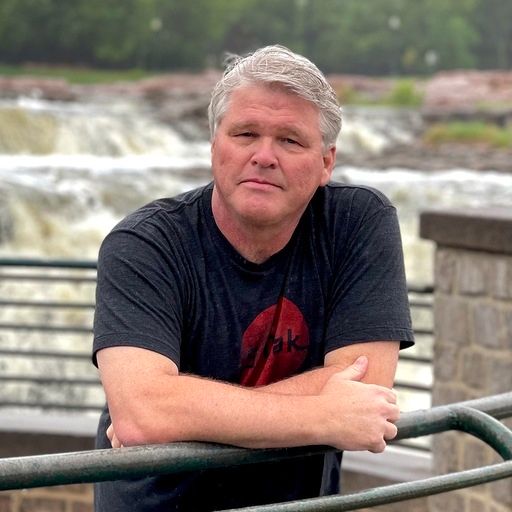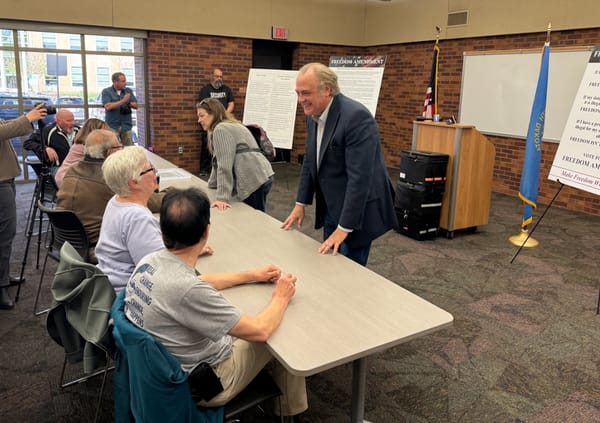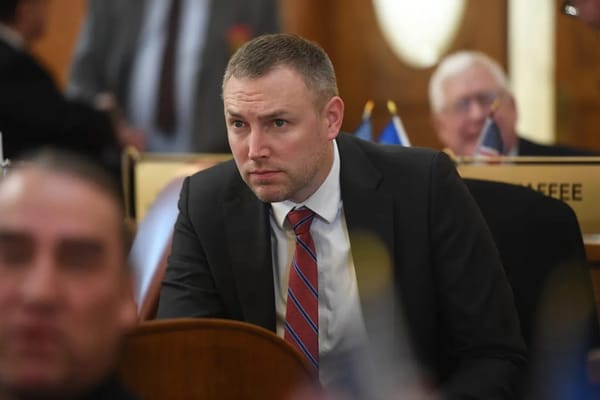

Anti-abortion group Life Defense Fund will have another chance to plead its case in front of Circuit Court Judge John Pekas in Minnehaha County.
The South Dakota Supreme Court on Friday reversed a circuit judge's dismissal of a lawsuit filed by an anti-abortion group seeking to keep an abortion rights amendment from reaching the November ballot.
That means Life Defense Fund will have another chance to plead its case in front of Circuit Court Judge John Pekas in Minnehaha County. The group contends that Amendment G's sponsor, Dakotans for Health, violated state laws with improper petition circulation.
Rather than addressing specific charges in the complaint, Pekas questioned why the South Dakota Secretary of State’s office wasn’t named as a party in the lawsuit. The Supreme Court ruled Friday that was a mistake on the judge's part.
"This Court . concluded that the circuit court erred in dismissing the matter based on its determination that (Life Defense Fund) should have brought the case as a quo warranto action to challenge the Secretary of State's authority," the Supreme Court's order of reversal read. Such an action requires someone to show they have the authority to do something.
At the same time, the Supreme Court denied Life Defense Fund's request for a different circuit judge and also rejected a request to expedite the matter in circuit court, noting that "this exceptional level of supervision over a circuit court's calendar is not supported by the current state of the record."
If passed by voters, Amendment G would enshrine abortion rights in the state constitution.
Jim Leach, the Rapid City lawyer representing Dakotans for Health, said that the organization "will continue to fight for the right of South Dakota citizens to vote on the Roe v. Wade initiative – and we will continue to oppose those who are trying to stop them from voting."
Leslee Unruh, co-chair of Life Defense Fund, issued the following statement:
“Rick Weiland and his paid posse have broken laws, tricked South Dakotans into signing their abortion petition, left petitions unattended, and much more. Dakotans for Health illegally gathered signatures to get Amendment G on the ballot, therefore this measure should not be up for a vote this November."
Life Defense Fund's push for an expedited timetable is based on the Aug. 13 deadline for the secretary of state to certify copies of all ballot questions to county auditors for ballots to be properly printed.
Sara Frankenstein, the Rapid City lawyer representing Life Defense Fund, did not respond to a request for comment from News Watch on Friday afternoon.
Pekas dismissed the complaint at a July 15 hearing at the Minnehaha County Courthouse, saying from the bench that "I don't know how Dakotans for Health can control the secretary of state. They submitted the (petition) information to the state of South Dakota and it has been accepted."
In appealing to the state Supreme Court two days later, Frankenstein called that a misinterpretation of state law, which states that a summons and complaint “shall be served on each petition sponsor as a party defending the validated petition being challenged.”
The appeal stated that “the circuit court failed to apply the statute requiring Life Defense Fund to file a summons and complaint against Dakotans for Health. The court should move swiftly to reverse and remand the case to permit discovery to commence and the case to proceed forward over the next four weeks.”

The Supreme Court ruling on Friday stressed that "the Court has not decided and expresses no opinion on any issues raised by the parties, including whether the Secretary of State is an indispensable party to this action. Any such issues can be resolved . by the circuit court on remand."
Weiland, co-founder of Dakotans for Health, told News Watch after the appeal that he stands by comments portraying Life Defense Fund's legal gambit as another in a series of attempts to block the measure from reaching voters.
“I’ve thought all along that this was a bridge too far for them to think they could dismiss 55,000 South Dakotans based on some petitioner residency requirement that’s not on the books,” Weiland said. “Every time they’ve tried to disrupt this and make it about something other than letting the people vote, they’ve been unsuccessful.”
South Dakota is currently under a 2005 state trigger law activated in June 2022 when the Supreme Court left it up to states to determine reproductive rights with its ruling in Dobbs v. Jackson Women’s Health Organization.
The law makes it a Class 6 felony for anyone “who administers to any pregnant female or prescribes or procures for any pregnant female” a means for an abortion, except to save the life of the mother.
If passed, Amendment G would prevent the state from regulating abortions during the first trimester. During the second trimester, the state could regulate the abortion decision, but any regulation must be reasonably related to the physical health of the mother. During the third trimester, abortion could be prohibited except if it is necessary to preserve the life or health of the pregnant woman, according to her physician.
On May 16, South Dakota Secretary of State Monae Johnson’s office certified the measure for the Nov. 5 ballot, saying that a random sample showed 46,098 of the 54,281 submitted signatures were deemed valid, well over the threshold of 35,017.
Nearly a month later, Life Defense Fund and Frankenstein filed a complaint in state circuit court asking that the amendment be disqualified. It also asked the court to prohibit “Dakotans for Health and those who worked with or for it” from being involved in petition or ballot measure campaigns for a period of four years.
“If they had a complaint, they should have sued the secretary of state,” said Leach. “She’s the one who counted all the signatures and then ruled. There were more than enough signatures to put this on the ballot so the people could vote. If they’ve got a problem with it, they need to talk to her.”
Life Defense Fund, led by Republican state Rep. Jon Hansen and Unruh, alleged in their lawsuit that petition circulators violated a residency affidavit requirement introduced into state law in 2018, among other charges.
That law was later superseded by Senate Bill 180, which was halted in federal court in January 2023 as part of a permanent injunction signed by U.S. District Judge Lawrence Piersol, an action upheld by the U.S. Court of Appeals.
Dakotans for Health filed a motion in federal court to enforce the permanent injunction, but U.S. District Judge Karen Schreier on July 5 ruled that state court proceedings should be allowed to continue before determining if federal intervention was warranted.

Of the five counts detailed in the complaint as alleged violations, several were recast from clashes between Life Defense Fund and Dakotans for Health during the petition campaign and legislative session.
Among those accusations are that circulators left petitions unattended, failed to provide a circulator handout as required by law, and purposely confused the public with a “bait and switch” involving the grocery tax and abortion measures.
Attorney General Marty Jackley sent a letter to Dakotans for Health on Oct. 31, 2023, that mentioned "video and photographic evidence" of such encounters and warned of potentially illegal actions taken by petition circulators. No charges were filed.

Leach called the allegations “deceptive and overblown” in a February interview with News Watch. During a later interview, he stressed that it was important to let the people have their say at the ballot box as part of South Dakota’s longstanding initiative process.
“People want to vote," he said. "People signed petitions to vote. (Life Defense Fund) is saying that people shouldn’t be able to vote. Well, this is America. People should be able to vote.”
A statewide poll co-sponsored by News Watch and the Chiesman Center for Democracy at the University of South Dakota conducted in May showed that 53% of respondents support Constitutional Amendment G, compared to 35% opposed and 11% undecided.
This story was produced by South Dakota News Watch, a nonpartisan, nonprofit news organization. Read more in-depth stories at sdnewswatch.org and sign up for an email every few days to get stories as soon as they're published. Contact Stu Whitney at stu.whitney@sdnewswatch.org.
Students will team up with journalists to ask questions at the forum, which will feature PUC candidates and representatives from both sides of ballot measures to be decided in November.
Stu Whitney Sep 15, 2024What it means for 2026: Fundraising sheds light on what could be one of the state's most contested and consequential election cycles.